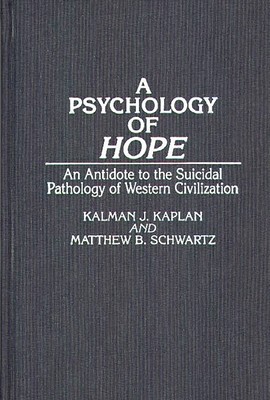
- We will send in 10–14 business days.
- Author: Kalman Kaplan
- Publisher: Praeger
- ISBN-10: 0275943798
- ISBN-13: 9780275943790
- Format: 15.2 x 22.9 x 1.6 cm, hardcover
- Language: English
- SAVE -10% with code: EXTRA
Reviews
Description
This book offers a new approach by combining the disciplines of history, psychology, and religion to explain the suicidal element in both Western culture and the individual, and how to treat it. Ancient Greek society displays in its literature and the lives of its people an obsessive interest in suicide and death. Kaplan and Schwartz have explored the psychodynamic roots of this problem--in particular, the tragic confusion of the Greek heroic impulse and its commitment to unsatisfactory choices that are destructively rigid and harsh. The ancient Hebraic writings speak little of suicide and approach reality and freedom in vastly different terms: God is an involved parent, caring for his children. Therefore, heroism, in the Greek sense, is not needed nor is the individual compelled to choose between impossible alternatives.
In each of the first three sections, the authors discuss the issues of suicide from a comparative framework, whether in thought or myth, then the suicide-inducing effects of the Graeco-Roman world, and finally, the suicide-preventing effects of the Hebrew world. The final section draws on this material to present a suicide prevention therapy. Historical in scope, the book offers a new psychological model linking culture to the suicidal personality and suggests an antidote, especially with regard to the treatment of the suicidal individual.
EXTRA 10 % discount with code: EXTRA
The promotion ends in 19d.12:19:37
The discount code is valid when purchasing from 10 €. Discounts do not stack.
- Author: Kalman Kaplan
- Publisher: Praeger
- ISBN-10: 0275943798
- ISBN-13: 9780275943790
- Format: 15.2 x 22.9 x 1.6 cm, hardcover
- Language: English English
This book offers a new approach by combining the disciplines of history, psychology, and religion to explain the suicidal element in both Western culture and the individual, and how to treat it. Ancient Greek society displays in its literature and the lives of its people an obsessive interest in suicide and death. Kaplan and Schwartz have explored the psychodynamic roots of this problem--in particular, the tragic confusion of the Greek heroic impulse and its commitment to unsatisfactory choices that are destructively rigid and harsh. The ancient Hebraic writings speak little of suicide and approach reality and freedom in vastly different terms: God is an involved parent, caring for his children. Therefore, heroism, in the Greek sense, is not needed nor is the individual compelled to choose between impossible alternatives.
In each of the first three sections, the authors discuss the issues of suicide from a comparative framework, whether in thought or myth, then the suicide-inducing effects of the Graeco-Roman world, and finally, the suicide-preventing effects of the Hebrew world. The final section draws on this material to present a suicide prevention therapy. Historical in scope, the book offers a new psychological model linking culture to the suicidal personality and suggests an antidote, especially with regard to the treatment of the suicidal individual.


Reviews